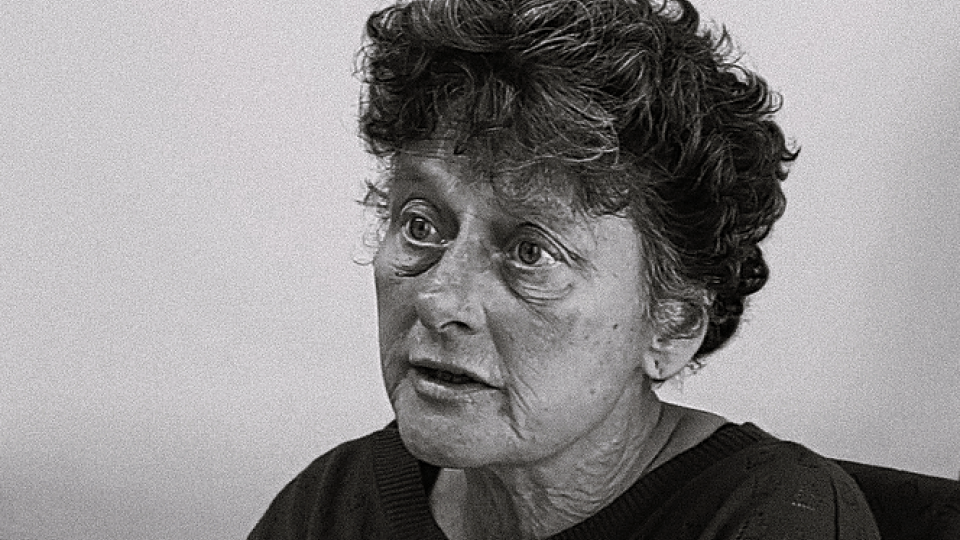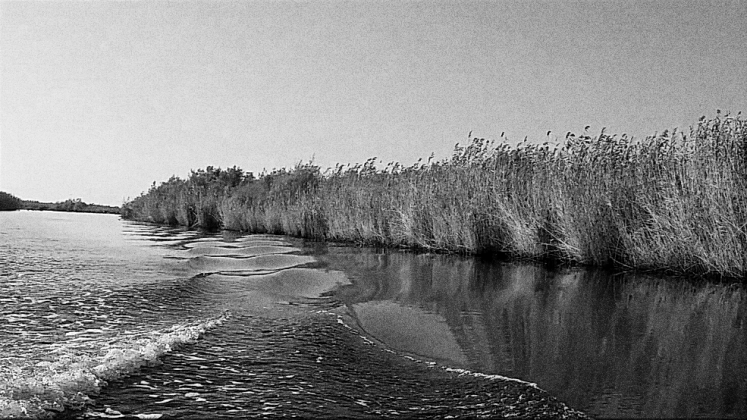Pushbacks, according to The European Center for Constitutional and Human Rights, ‘entail a variety of state measures aimed at forcing refugees and migrants out of their territory while obstructing access to applicable legal and procedural frameworks. In doing so, States circumvent safeguards governing international protection (including minors), detention or custody, expulsion and the use of force.’
Translated into practice, this means that people who cross certain European borders in an informal fashion are subjected to illegal 'migration control' procedures that seek to halt the flow of refugees by force. Pushbacks frequently involve mugging, humiliation and various other acts of physical, verbal and sexual violence.
I have been researching this topic for the past 3 years - after graduating from the MPP, I decided to fully devote my efforts to create the documentary film ANACHOMA (together with a committed team) about what’s happening at the Greek-Turkish border, and to spread these stories beyond academic circles.
The border where our film is set is the one created by the Evros River (also known as the Meric in Turkish and Maritsa in Bulgarian), a massive, fast-flowing body of water which stretches 480 kilometres from the Rila mountains in Bulgaria down to its delta at the Thracian sea. In one of our recorded interviews for this project, our team member Phevos Simeonidis (Durham University PhD candidate and Open Source investigator) describes the border as follows: “Sometimes you just know that you’re in a dangerous space. The Evros is difficult terrain and you feel it when you’re there.”
In another interview, Stefanos Levidis – project leader for Forensic Architecture (a research agency investigating human rights violations) and author of a PhD thesis about the weaponization of the Evros River – added that “the situation along the Evros is designed to deter people from crossing.”
Indeed, many migrants do not survive their attempts to cross the border. According to Pavlos Pavlidis – a forensics professor at the Democritus University of Thrace in Alexandroupolis, Greece – who has examined hundreds of bodies found in the Evros River over the last two decades, the leading cause of death is drowning, followed by hypothermia, other medical reasons and accidents while crossing railway tracks. These causes of death would seem to arise from the fact that the people who attempt to cross the border feel the need to remain invisible to authorities in this part of the country, regardless of whether they wish to seek asylum in Greece or not. During our interview with Professor Pavlidis (which proved to be one of the most emotionally difficult to conduct throughout the making of this film), he shared that in the last 22 years, approximately 660 bodies have been found and that is only on the Greek side of the border, since he did not have knowledge about how many have been found on the Turkish side.
How did we discover all of this? Primarily through the incredible work of Natalie Gruber, Gigi Aulsebrook, and many others who assisted our work in the field. Gigi, who is currently the advocacy officer of the Border Violence Monitoring Network and Natalie, founder and former director of Josoor (which was an association that supported pushback survivors), helped us to gain insights into the issue through their work at the Turkish end of the border. Back in 2021, when both of them were working to provide aid as the first responders after a pushback, they also collected testimonies of people’s accounts.
Together, we recorded more than 12 interviews with pushback survivors. The people we spoke to (which included men, women and children) all described very similar pushback experiences - namely, the theft of their personal belongings, the use of violence, humiliation, strip searches, and consequently, their expulsion back to Turkey.
Cases such as the one of two brothers, who escaped from Deir ez-Zor in Syria, therefore suffered the same fate as border crossers from North Africa, a middle-aged woman from the north of Syria and a person who wanted to leave Gaza behind him, even before the recent escalations.
Thus it appears that the values enshrined in the European Convention on Human Rights, the European Charter of Fundamental Rights, the 1951 Convention relating to the Status of Refugees and its 1967 Protocol - as well as at least seven laws, regulations and amendments provided on the management of migration and asylum by the Greek state (links here: 1, 2, 3, 4, 5, 6, 7) - are being violated frequently. These violations include collective expulsion, torture, theft, degrading treatment or punishment, and the disregard for the principle of non-refoulment, as well as the right to asylum.

Throughout the production of our piece, we have tried to do justice to every element of the story that shapes the situation along the Evros. Thus in addition to capturing the experiences of the people who endured a pushback, we also sat down with NGO representatives, UNHCR staff, human rights lawyers, investigators, researchers, locals (from both sides of the border) and even members of the European Parliament. In addition, we have collected written responses by the European Commission and the European Border and Coast Guard Agency (Frontex).
In total, we have collected over 30 interviews over the span of 3 years, and gathered visual material from 20 locations, from Istanbul to Brussels. We have tried to examine the entirety of this illegal practice, from the point at which migrants are seized up until their expulsion and its aftermath - with the latter not only having dangerous implications for refugees, but also for those who try to help them. We did all of this because we felt the need to properly construct, for the first time, a comprehensive narrative around one of “Greece’s worst kept secrets” and provide our viewers with a piece of earnest reporting.
ANACHOMA is a project that has come very far with immense commitment from the team and investment of our own resources. However, to make this hard work see the light of day, we need the support of a broader community, of people who care. That’s why we started our crowdfunding campaign.
If you are interested in collaborating to help us tell the world about these stories, and to hold the bright light of a projector to the injustices that have continued for decades, please consider visiting our website and contributing with a donation to ANACHOMA.
ANACHOMA's social media channels:
Instagram | X | Facebook | LinkedIn | YouTube

